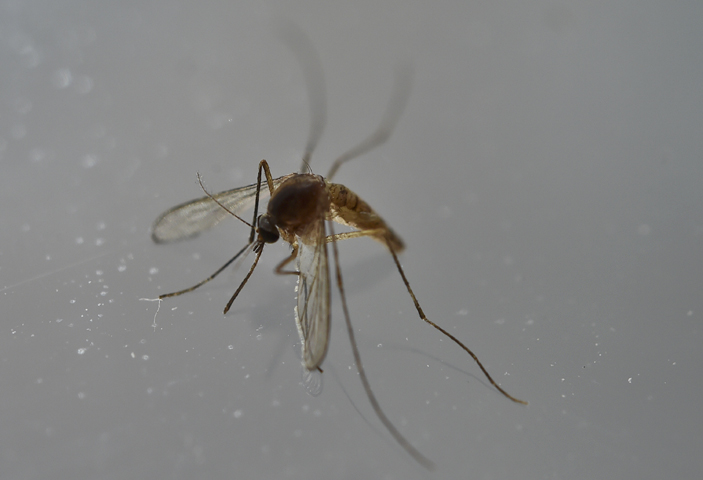Zika spreads in Africa for first time: WHO
The World Health Organization announced that the strain of Zika circulating in Cape Verde had been shown to be the same as the one behind an explosion of cases in the Americas.
GENEVA - The Zika virus strain linked to surging cases of neurological disorders and birth defects in Latin America has now been found in Africa, health officials said Friday, as the first fatality on French territory was reported on the Caribbean island of Martinique.
The World Health Organization announced that the strain of Zika circulating in Cape Verde had been shown to be the same as the one behind an explosion of cases in the Americas.
"This is the first time that strain of Zika which has been showed to cause neurological disorders and microcephaly... has been detected in Africa," Matshidiso Moeti, WHO's Africa regional chief, told reporters in Geneva.
The so-called Asian strain of the virus, which has infected some 1.5 million people in Brazil, the worst-affected country, was detected in Cape Verde through the sequencing of Zika cases in the island nation.
"It is the same genetic material as the virus in Brazil," WHO spokeswoman Marsha Vanderford told AFP.
"The findings are of concern because it is further proof that the outbreak is spreading beyond South America and is on the doorstep of Africa."
"This information will help African countries to re-evaluate their level of risk and adapt and increase their levels of preparedness," she added.
Experts agree that Zika is behind a surge in cases of the birth defect microcephaly -- babies born with abnormally small heads and brains -- after their mothers were infected with the virus.
The virus, which also causes the rare but serious neurological disorder Guillain-Barre Syndrome, is mainly spread by two species of Aedes mosquito but has also been shown to transmit through sexual contact.
Friday saw the French Caribbean island of Martinique suffer its first Zika virus-related death, the regional health agency said.
"The patient, aged 84, had been hospitalised for 10 days in intensive care with Guillain-Barre Syndrome," the agency said, before tests late last week showed up the Zika link.
Some experts believe there is a link between Zika and Guillan-Barre -- in which the immune system attacks the nervous system.
WHO believes the Asian Zika strain was imported to Cape Verde by a traveller coming from Brazil, before it began spreading locally last October.
As of May 8, 7,557 suspected Zika cases had been registered in Cape Verde, as well as three microcephaly cases, WHO said.
No cases of Guillain-Barre Syndrome have been registered in the country so far.
The African strain of the Zika virus, which takes its name from Uganda's tropical Zika forest where it was first discovered in 1947, has been widespread on the continent since then.
But until recently, Zika caused little concern, as it usually leads only to mild, flu-like symptoms, and it appeared many Africans had built up immunity against the virus.
Worst-case scenario
But it remains unclear what impact the arrival of the new strain to the continent will have, said Bruce Aylward, WHO chief on outbreaks and health emergencies.
"We know that the African strain has circulated in part of Africa for decades now," he told reporters.
"What we don't know is the population immunity that may have been left behind on the way, and also whether or not that will mitigate some of the impact of this new... strain," he said.
Aylward said WHO hoped blood tests would help rapidly establish "whether or not there is some degree of population immunity that will help reduce some of that vulnerability."
But he stressed that for now it was important to move forward "against a worst-case scenario" and assume Africans would be as vulnerable as people in Latin America to the impact of the strain.
Cape Verde and other African countries at risk should inform pregnant women especially about the risks associated with the Asian strain of the Zika virus, as well as about the best ways of protecting against infection, including avoiding mosquito bites, WHO said.
The UN agency also urged countries to step up efforts to detect microcephaly, Guillain-Barre and other neurological disorders linked to Zika and their preparedness to deal with increases in cases.
